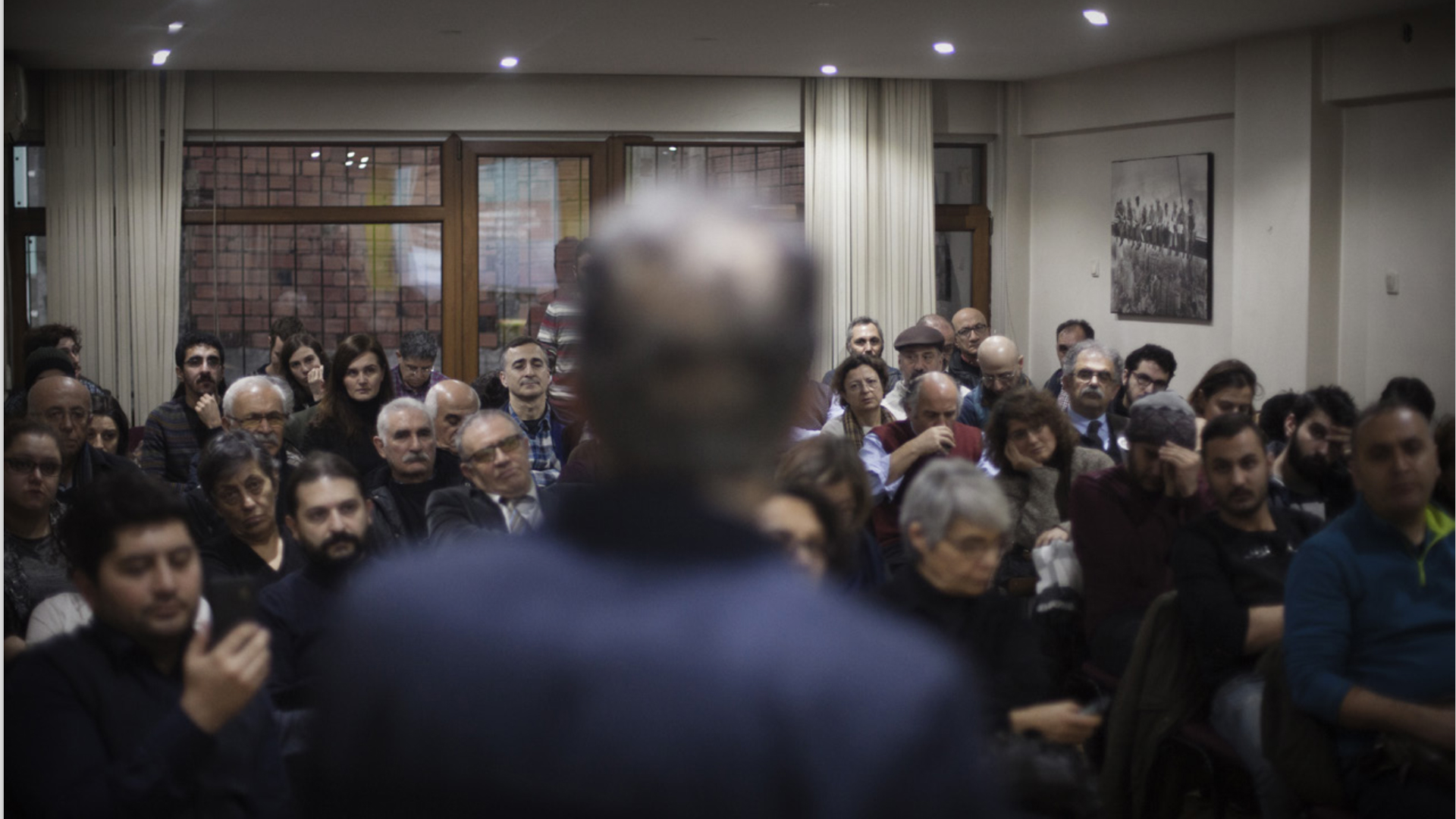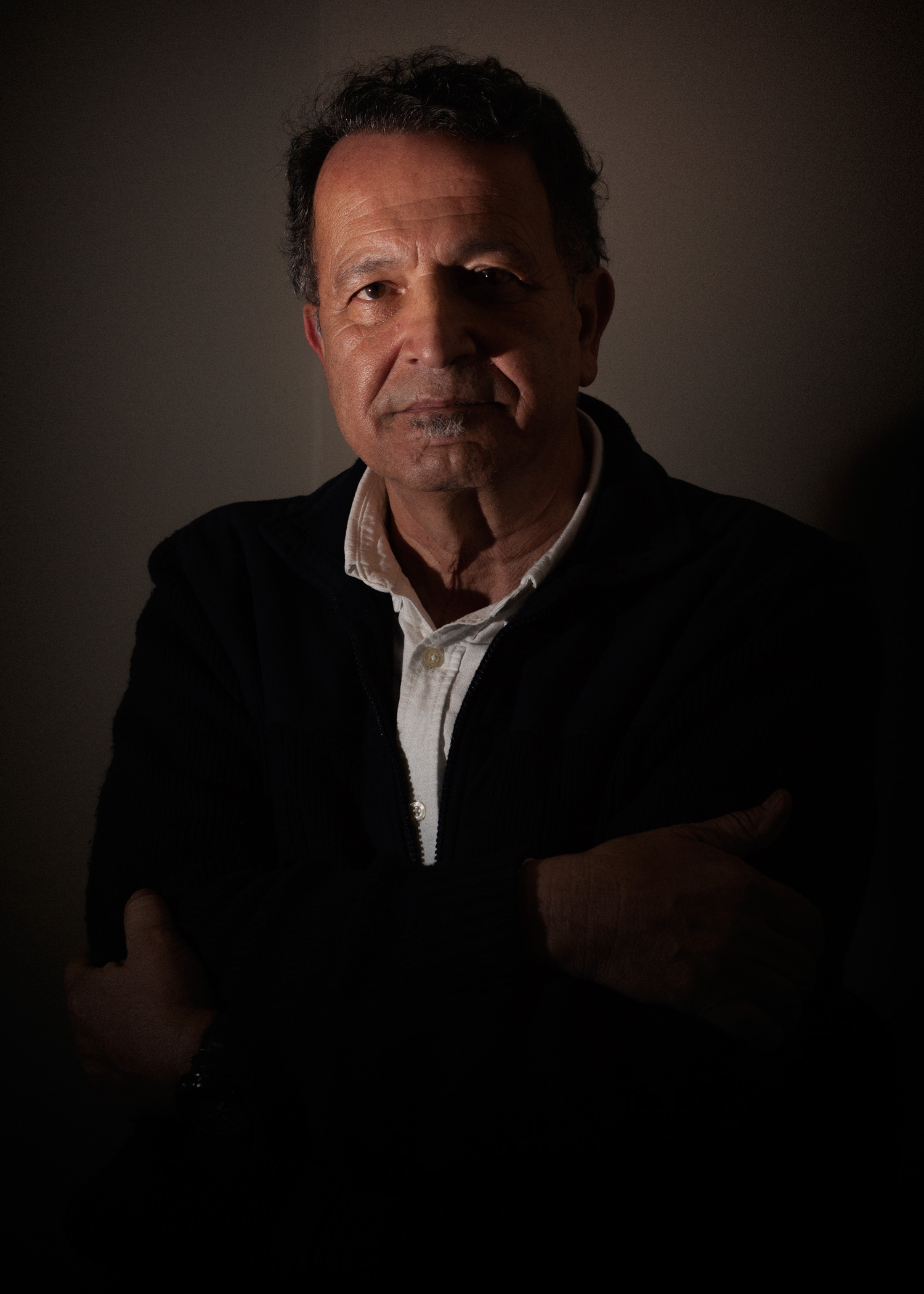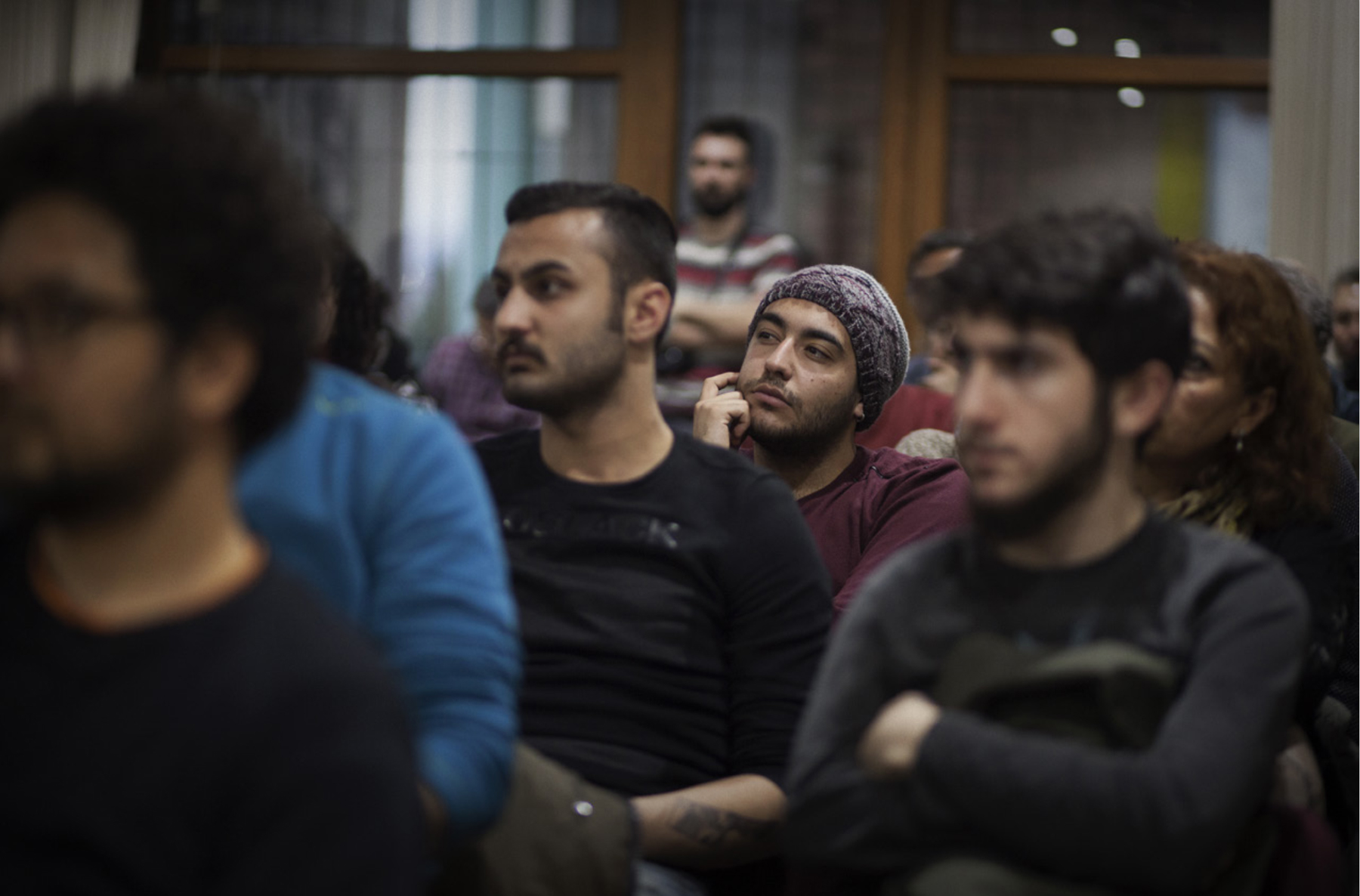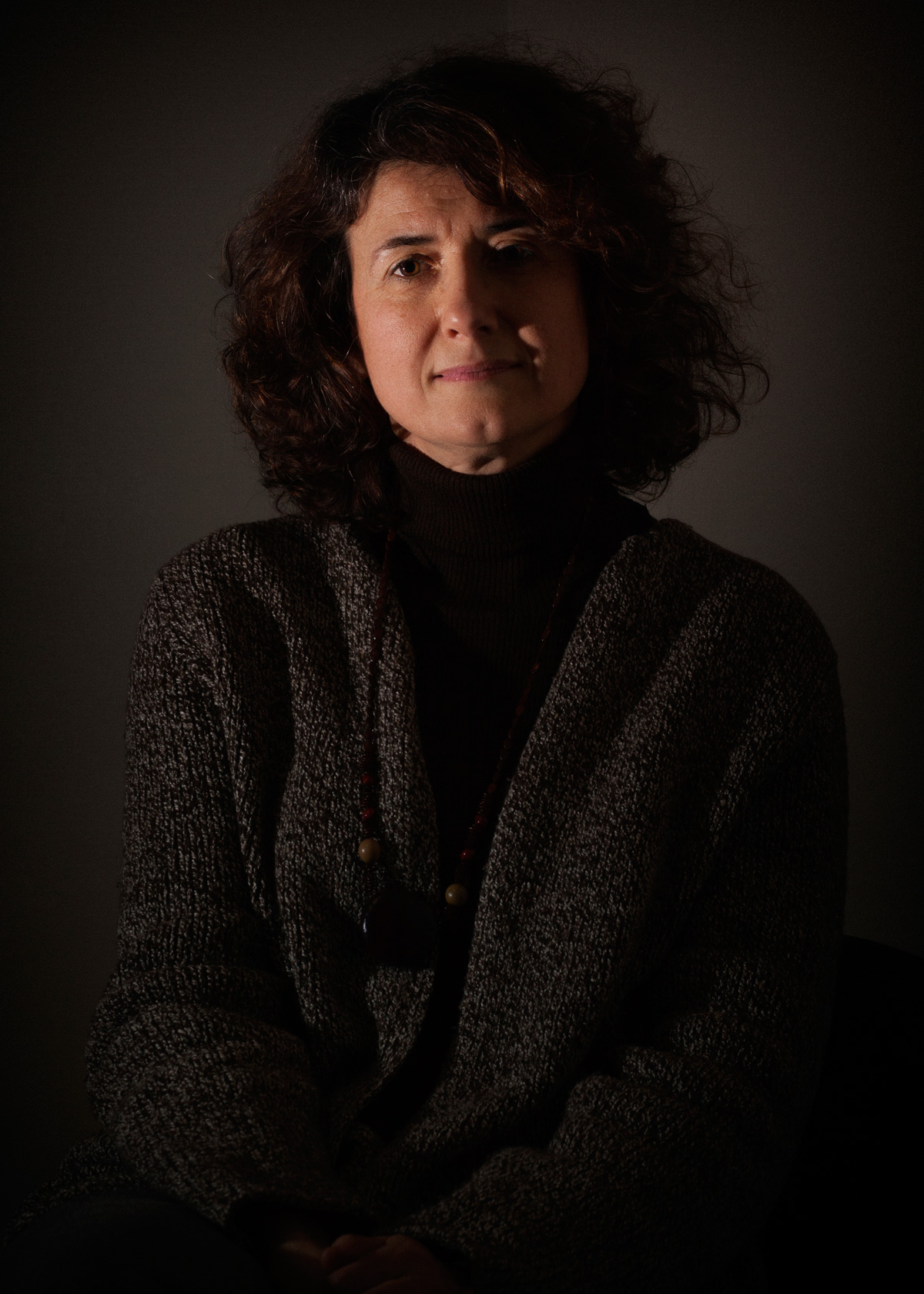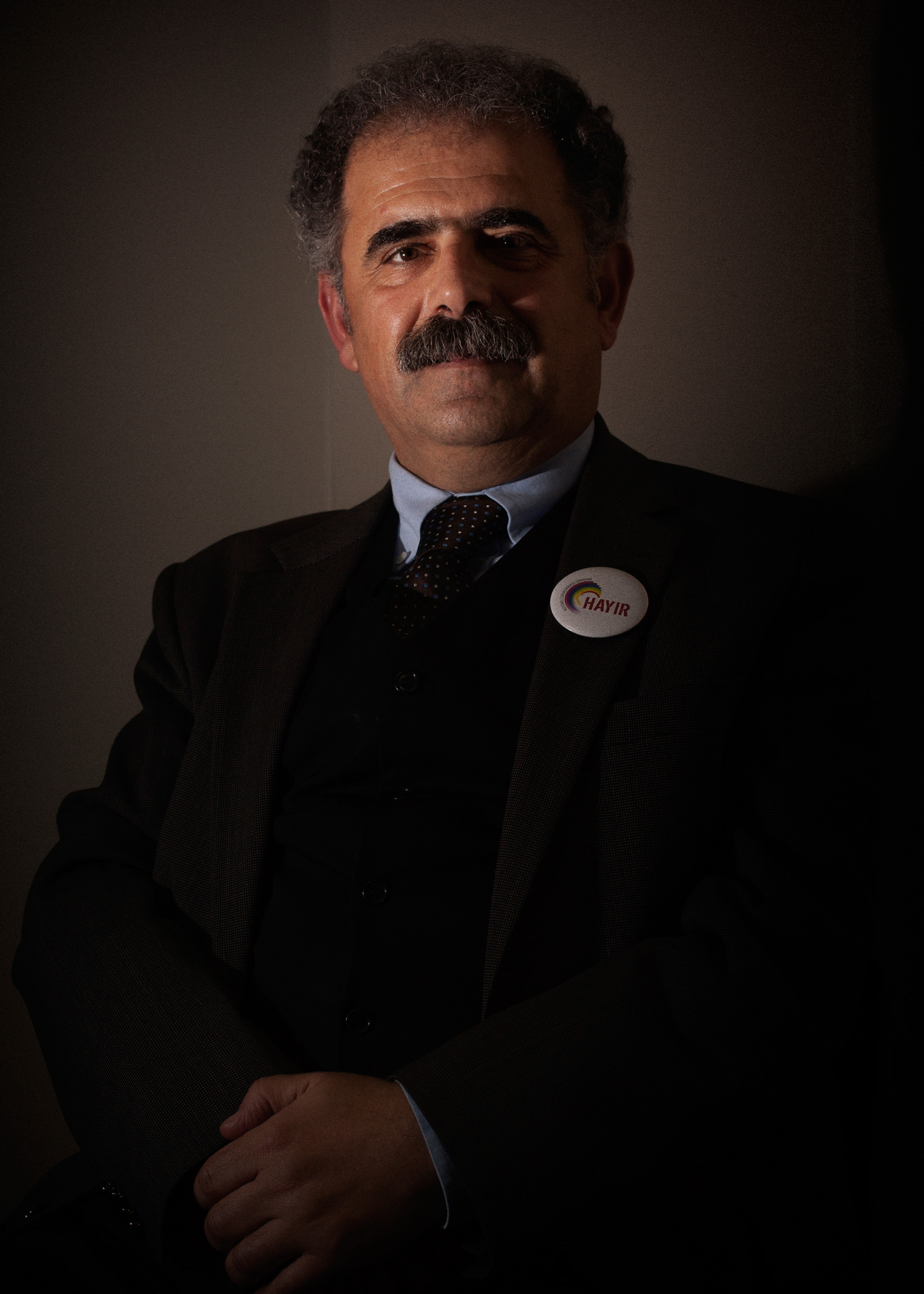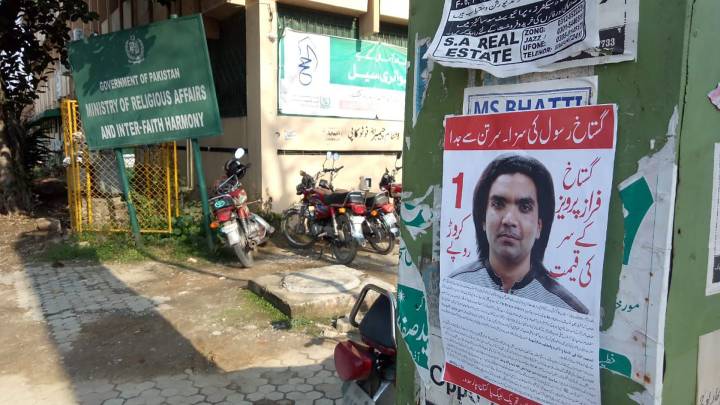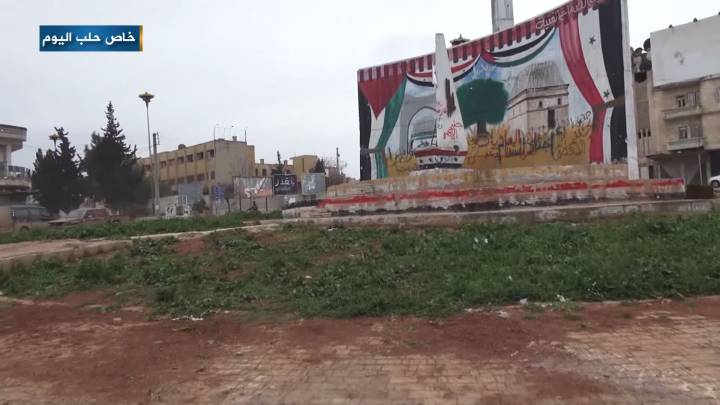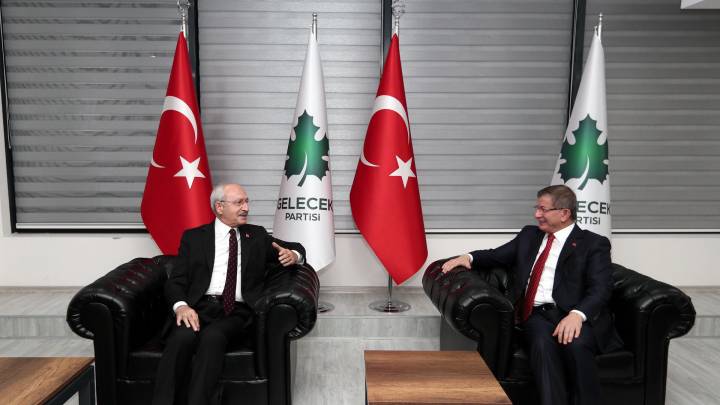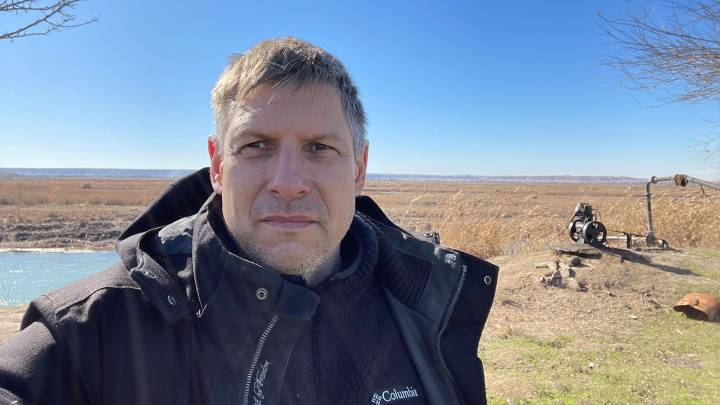Fired from their university jobs after signing a petition calling for peace, a group of Turkish academics from the town of Izmit have founded their own academy and are continuing to teach.
It’s been over a year since Yücel Demirer, an associate professor at the University of Kocaeli, was arrested by the anti-terror squad of the local police department in the early hours of 15 January, 2016. Together with other colleagues from the university, he was put in a cell at police headquarters and held in custody for the rest of the day. Their crime? Signing a petition calling for peace in the southeast of Turkey, where the army and Kurdish militants were fighting a deadly war.
Demirer and his colleagues were released the same evening. “They didn’t abuse or torture us, but it was tasteless,” he recounts a few months later at the office of the local branch of the teachers’ union in Izmit, a heavily industrialised coastal town an hour’s drive south of Istanbul in Kocaeli Province. “From that moment on, we realised something had changed.”
Demirer, a soft-spoken 53-year-old political scientist, calmly explains how he and his colleagues who also signed the petition were being increasingly harassed at the university. They were no longer allowed to partake in academic conferences, were being refused promotions, and an internal investigation was launched against them.
People are trying to survive. And their survival depends on not voicing their opinions and their thoughts loudly.On September 1, their ordeal came to an unfortunate conclusion. Together with thirty-eight colleagues – eighteen of them co-signatories of the petition, by then starting to refer to themselves as ‘peace academics’ – Demirer was fired by emergency decree. This means they not only lost their job, but also their titles, positions, social security, pensions and passports.
With a stroke of the pen, the peace academics and their colleagues from the University of Kocaeli were added to the group of more than 7,000 academics who have lost their jobs since the failed coup attempt of July 2016, including more than 4,800 as a direct result of emergency decrees.
But what sets the Kocaeli academics apart from many of their colleagues is that their dismissal was not just the end of life as they knew it, but also the start of something new and perhaps even more exciting.
An Academy for Solidarity
One week after their collective dismissal on September 1, the academics gathered on campus for a goodbye protest. They unfurled a banner with the text “We will return! We’re not leaving our students and our city behind!” Peace academic Derya Keskin, who worked in the university’s sociology department for five years before being dismissed along with her colleagues, explains that this was more than just a promise; it was a manifesto of their resistance.
Banned from the university, but with a strong desire to keep on doing what they do best – researching and teaching – the peace academics of the University of Kocaeli decided to take matters into their own hands. On September 28, they founded the Kocaeli Academy for Solidarity. In the building of the Eğitim-Sen teachers’ union, they organise weekly meetings and public lectures where everyone is welcome, a guerrilla university in response to the increasing repression of academic and individual freedoms in Turkey.
“We don’t need positions at universities. We don’t need a salary from the government. We don’t need money to be academics,” states Keskin, who fiercely summarises the motto and philosophy of the Academy for Solidarity.
Every week, the nineteen dismissed peace academics gather to discuss their plans. At the moment they’re in the process of formalising their activities at the Academy, so that they can apply for funds from abroad to continue their research and seminars. At the end of every meeting, usually around five o’clock, one of the academics gives a lecture on a topic from their field of research.
The small room in the union building is packed every week with students, colleagues and curious visitors. They would prefer to hold the lectures in a bigger room, but according to Demirer, this is impossible; the governor of Kocaeli personally intervened to make sure the Academy wasn’t welcome anywhere else in town.
By now it’s been almost seven months, and so far they’ve kept their promise not to leave their students and their town behind. They continue their classes at the Academy, and their resistance is as strong as ever. They may have lost their jobs at the university, but they certainly haven’t lost their professions.
The importance of their struggle is recognised by some of the former students who regularly turn up to the weekly seminars to show their support. “What made the university a university were these professors,” says Umut*, a 24-year-old political science student. “But we feel a gap has opened after they were dismissed, because the quality of the university has diminished now.”
“These events are very rare in Turkey,” adds Umut, referring to the seminars. “That’s why they are so important and why it needs our support.”
At the seminar, 23-year-old law student Deniz says, “This is a place where we can freely express our ideas and ideologies.” Deniz has a lot of respect for the former professors, admiring their perseverance: “The government has always persecuted them. But they took a stance then, and they are taking a stance right now, even at the cost of their own reputation, their academic research, their income and their job. They have always shown us the way. We should never stand down or quit fighting against this injustice.”
Silence and assent
Harun Acar is a 27-year-old PhD candidate at the University of Kocaeli and a committed participant in the open seminars. Caustically, he explains that life on campus and at the university continues “as if nothing ever happened”. Thirty-nine academics disappeared from the university all of a sudden, and no-one dares to speak up.
“People are trying to survive,” says Acar, in an attempt to explain the overwhelming silence of his colleagues at the university. “And their survival depends on not voicing their opinions and their thoughts loudly. It’s an adaption mechanism for them.”
A climate of silence and assent is typical of the Turkish educational system. Submission to authority and walking the line are often valued higher than critical analysis, individual thought and creative development.
Still, it’s not just out of self-preservation that people decide to remain silent, the PhD student admits. Many of them, especially in the higher echelons of the educational system, support the government and welcome the decrees that have led to the dismissal of the peace academics, whom they consider traitors to their country and supporters of terrorism.
Labour sociologist Derya Keskin believes that the ruling Justice and Development Party (AKP) had been looking for ways to rid themselves of government critics at the universities for a long time. “Normally, they can’t fire us. Certainly not assistant profs and full professors,” explains Keskin. “If they did, you could file a complaint and in most cases you would get your job back.”
“We had already been facing a lot of injustice and discrimination, as much as they could with the tools they had at that moment,” Keskin recounts, prior to the weekly seminar in the centre of Kocaeli. “But after the coup attempt, they had more useful tools for their aims. Decrees, for example, are a very useful tool for them to get rid of people like us. And that’s what they’re doing.”
Turkey’s state of emergency continues today, having been extended by President Erdogan serveral times, who is governing the country by decree. Meanwhile, the April 16 referendum timetabled a presidential system that will transfer a broad range of executive powers from the parliament to the presidency in 2019. Calls for the introduction of the presidential system were multiplied after the failed coup attempt of July 15, 2016 by renegade elements of the Turkish army with suspected links to the Gülen movement. The Turkish government blames Fetullah Gülen – a US-based Islamic preacher and former close ally of President Erdogan – of masterminding the coup, but has so far failed to come up with any conclusive evidence to substantiate these accusations.
Nonetheless, the AKP-led government has used the failed coup as a pretext to purge the entire state apparatus not only of suspected Gülenists, but of government critics from all possible political and ideological backgrounds. Hundreds of thousands of government employees have thus far been sacked, detained or arrested, 149 media outlets have been shut down and 162 journalists have been arrested.
A glimmer of hope
In a local teahouse with a view over the Bosphorus in one of Istanbul’s central neighbourhoods, Özlem Özkan, another peace academic and a former associate professor in public health at the University of Kocaeli, explains the effect her dismissal has had on her social and personal life.
“A lot of people are afraid of us,” she admits. “People are scared to meet with us, to be seen with us. For example, people who previously invited us to come to conferences tell us it’s better for us not to come. They don’t want us to speak. Slowly we’re being pushed away, which is another way in which we’re being punished.”
“They took some people’s passports. They took our freedom of movement. But not just from us; our husbands, wives, kids are all victims of this. All of us. In the AKP’s view you’re guilty, so they punish not just you, but also your relatives.”
The future of the dismissed peace academics and of the Academy for Solidarity is unsure. For now the union provides them with a modest income, but with so many thousands of dismissals in the education sector, it’s only a matter of time before the solidarity fund runs dry. Yücel Demirer isn’t very optimistic that anything will change in the near future. “I’m fifty-three years old. I’m not allowed to work here. The regulations mean I’m not allowed to do anything in this country, and I’m not allowed to go abroad either. This is the kind of position me and my colleagues are put in, and this is almost fascism.”
Still, there’s a glimmer of hope. Demirer believes that the current experience could be the start of something new. “I believe in people, I believe in their struggle. Life is not easy, but at least this has provided a kind of freedom that we needed to find our own way.”
Health specialist Özkan agrees with Demirer that amidst the oppression and injustice there is something else to be sensed as well, a new energy that has the potential to resist and outlast the current climate of fear. “I’m definitely not scared,” explains Özkan. “I feel stronger now, more inside my life. This struggle has made me a different person and a different academic, more experienced.”
“This is a learning process,” she explains defiantly, while a smile appears on her face, “and because of the collective solidarity, we’re all stronger than before. We are taking power from each other. No matter how long it’s going to take, we’re going to turn back to our universities.”
“We will continue our academic and our scientific work. Our struggle will continue.”
* Names of all students have been changed and their genders neutralised to protect their identity.
